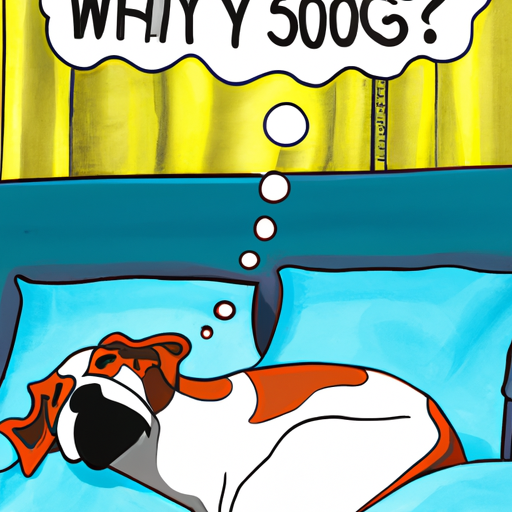Understanding Dog’s Sleep
Just like humans, your four-legged friends also experience different stages of sleep, including Rapid Eye Movement (REM) and Non-Rapid Eye Movement (NREM). During REM, dogs may snore, twitch their paws, or even bark. Snoring in dogs, as in humans, is often harmless and just a sign of deep, restful sleep.
- REM Sleep: During this stage, your dog’s breathing becomes irregular and they might snore or make other noises.
- NREM Sleep: This is a deeper sleep stage where your dog’s body rejuvenates. Snoring can also occur in this stage, especially if your dog is in an awkward sleeping position.
Possible Causes of Snoring in Dogs
Just as with humans, there are many possible reasons why dogs snore. Here are some common ones:
- Sleeping Position: Dogs that sleep on their backs are more likely to snore.
- Overweight: Excess weight can cause extra tissue to form around the throat, obstructing airflow.
- Allergies: Dogs can also be allergic to things like dust, pollen, or certain foods. These allergies can lead to inflammation in the throat and nasal passages, leading to snoring.
- Breed: Some breeds are more prone to snoring than others. Brachycephalic breeds like Bulldogs, Pugs, and Boston Terriers often snore due to their short noses and flat faces.
How to Prevent Your Dog From Snoring
If your dog’s snoring is bothering you or seems to be affecting their sleep, there are some steps you can take to help.
- Change Sleeping Position: Encourage your dog to sleep on their side.
- Weight Management: Keep your dog at a healthy weight to prevent excess tissue from forming around their throat.
- Allergy Management: If your dog has allergies, work with your vet to manage them.
- Proper Hygiene: Keep your dog’s sleeping area clean to prevent dust and allergens.
When to Seek Veterinary Help
Sometimes, snoring can be a sign of a more serious health issue, such as a respiratory condition or sleep apnea. You should seek veterinary help if:
- Your dog’s snoring is accompanied by other distressing symptoms.
- Your dog’s snoring happens every night and is very loud.
- Your dog seems to be struggling for breath during sleep.
Frequently Asked Questions (FAQs)
Q: Is snoring common in all breeds?
A: No. Brachycephalic breeds like Bulldogs, Pugs, and Boston Terriers are more prone to snoring.
Q: Can snoring be a sign of a health issue?
A: Sometimes. If your dog’s snoring is accompanied by other distressing symptoms, it’s best to consult a vet.
Q: How can I stop my dog from snoring?
A: Try changing your dog’s sleeping position, managing their weight, and keeping their sleeping area clean.
Q: My dog snores loudly every night, should I be worried?
A: If the snoring is very loud and happens every night, it’s best to consult a vet.



